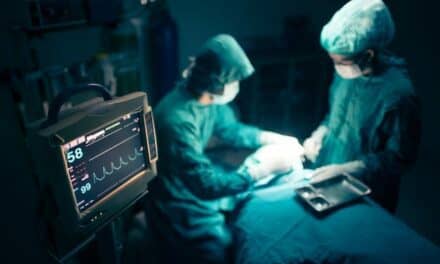A team of physicians and engineers from UC San Francisco, UC Berkeley, and other hospitals and businesses has developed a simple technique for repurposing sleep apnea machines into ventilators as demand outstrips supply in the fight against COVID-19.
The group, dubbed the COVID-19 Ventilator Rapid Response Team, has developed a way to retrofit off-the-shelf sleep apnea devices so they can mimic the function of a ventilator for patients who are seriously ill with COVID-19. To get these adapted ventilators into hospitals quickly, the group is seeking speedy FDA approval and wants to enlist local and federal officials. The team is also requesting donations of sleep apnea devices, such as CPAPs and BIPAPs, which people may have in their homes but do not currently need.
Government regulations typically restrict the development and use of medical devices for purposes for which they were not designed. The U.S. FDA has issued new guidance in light of the ventilator shortage, enabling sleep apnea machines to be used by hospitals caring for patients infected by COVID-19. Physicians and engineers collaborated on the design and are in the process of establishing the infrastructure to get them repurposed and into hospitals.
They also are seeking government support in rallying manufacturers and logistics companies to work together to provide simple off-the-shelf components, to repurpose devices, and get them distributed as quickly as possible to physicians. After all, the Institute for Health Metrics and Evaluation at the University of Washington has forecasted that the demand for ventilators will far exceed the capacity available for COVID-19 patients by mid April.
“We are hoping for expedited government support because hospitals are quickly getting besieged with COVID-19 patients,” says Ajay Dharia, PhD, pulmonary critical care doctor and staff physician at Mills Peninsula Hospital in California. “In emergency situations, doctors need viable alternatives that can be made ready in very short order. The use of home-based CPAP and BIPAP machines offer such a possible solution, but to become a feasible option this project needs backing from the FDA, manufacturers, and the government.”
The priority now is for the state and federal government to pick up this project and work with manufacturers and logistics companies to put the components together and get devices to healthcare workers on the front lines. The group also is seeking donations of sleep apnea devices from the community that they can repurpose and distribute to hospitals that need them. People and organizations can find out how to donate devices at ventilatorsos.com.
Moreover, members of the public are also encouraged to contact their state governors and White House officials and voice their support so that these efforts to increase the number of retrofitted ventilators are quickly approved and deployed.
“We’re trying to help the government by bringing in a solution that we think can scale quickly,” says Bryan Martel, a team organizer and co-founder of Berkeley Engineering and Research, Inc. “This is an opportunity to address a life-critical issue and we’re looking forward to doing everything we can to help the White House and governors save lives during this crisis.”





